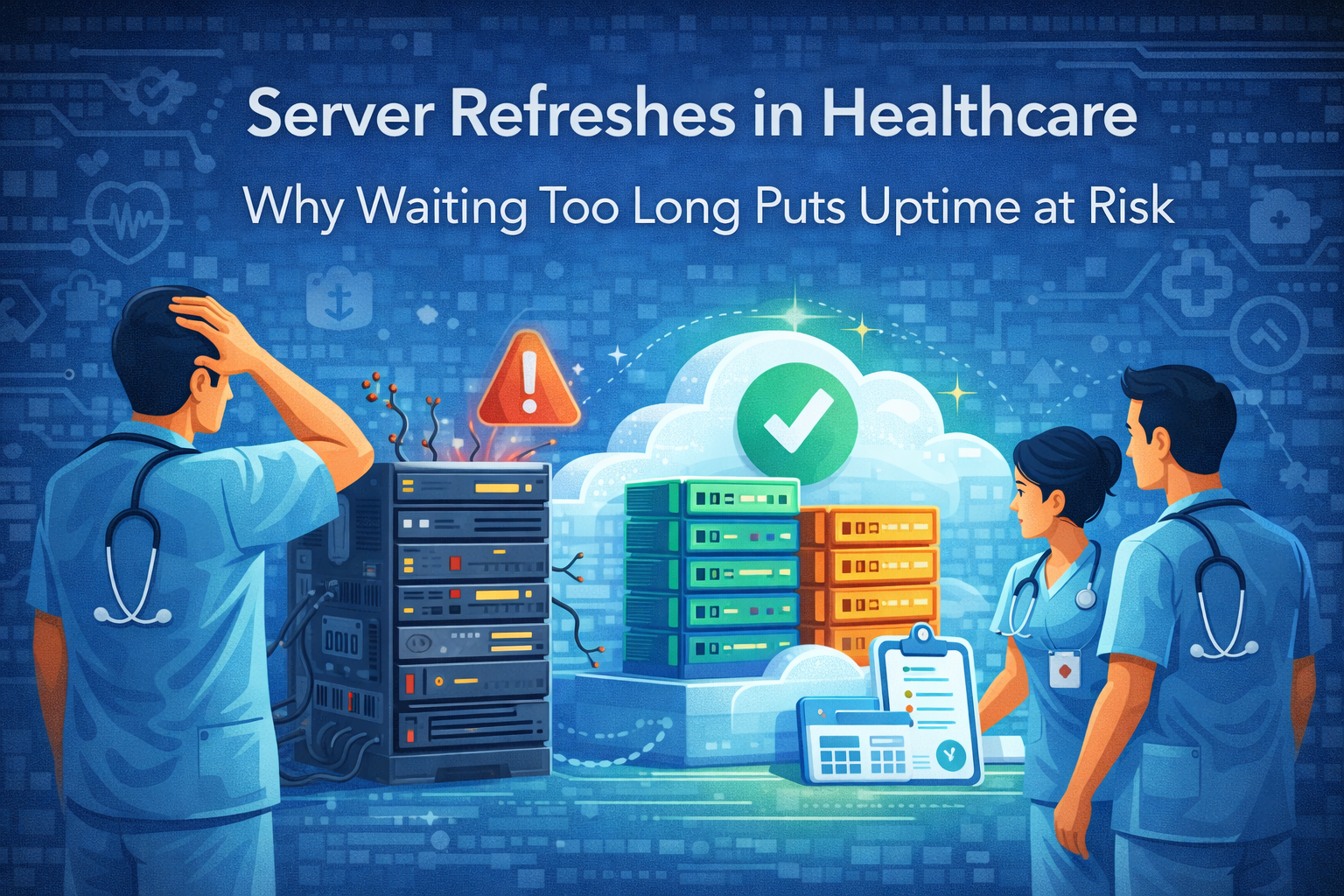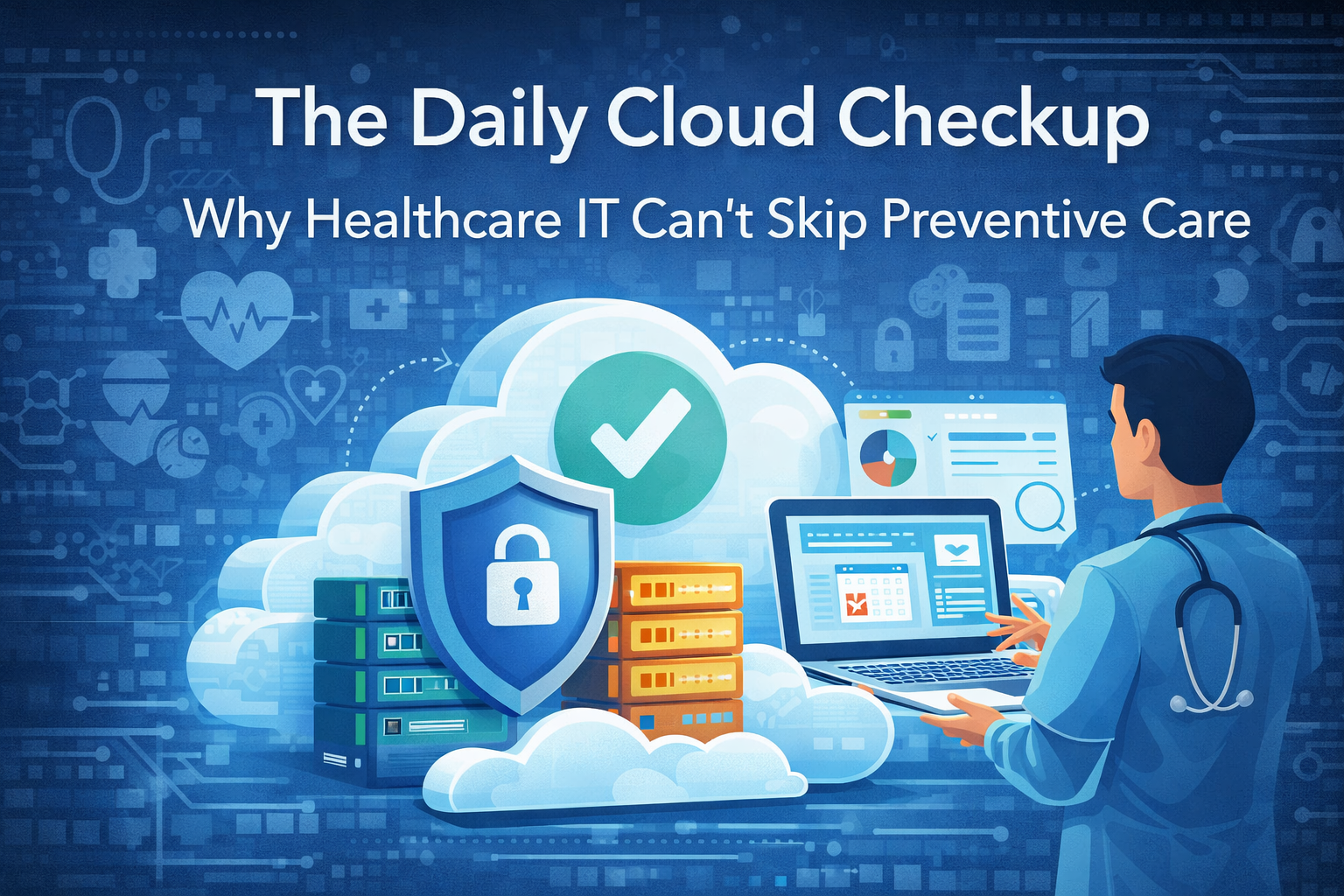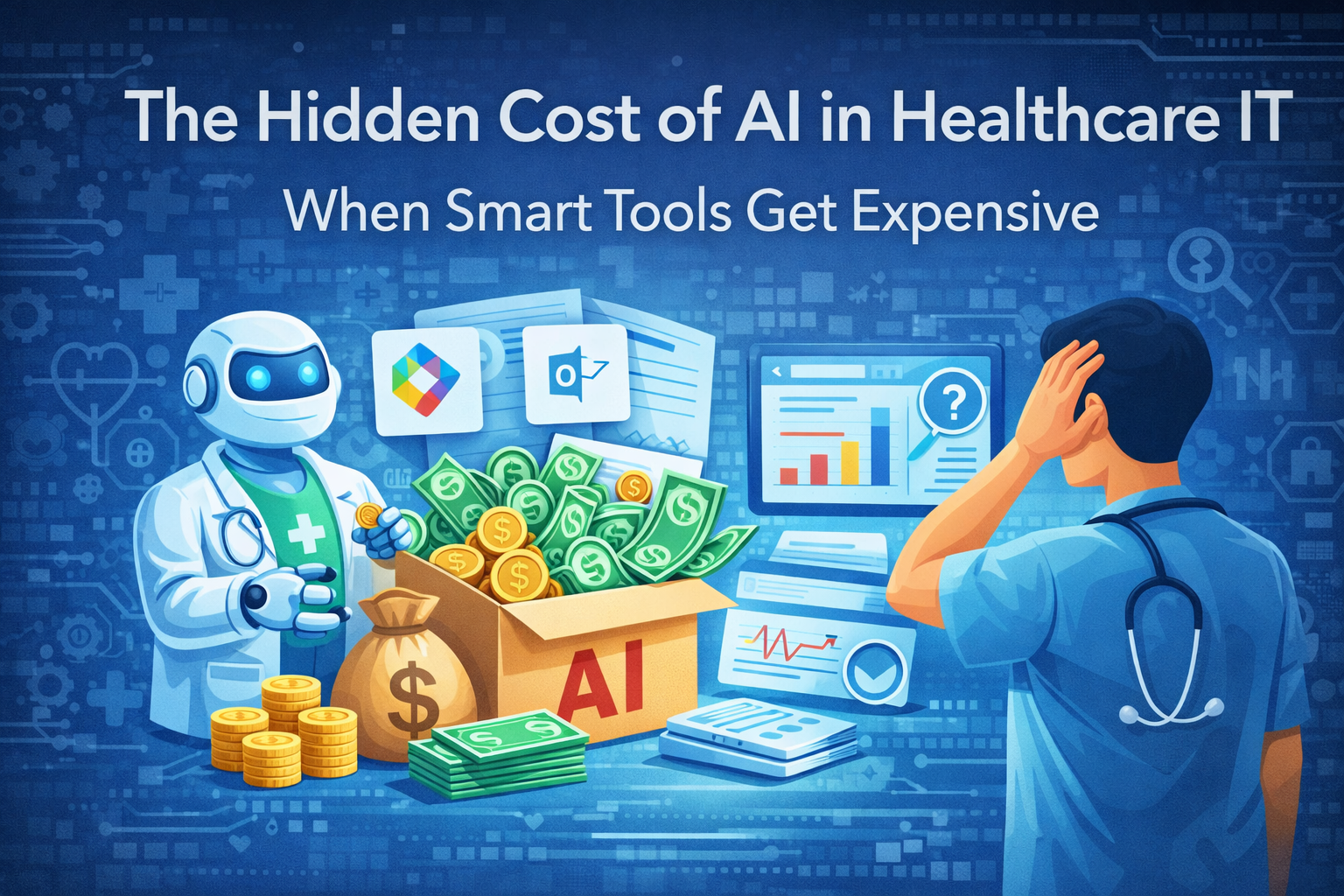Server Refreshes in Healthcare: Why Waiting Too Long Puts Uptime at Risk
Servers don’t care about clinic hours, patient schedules, or Monday mornings. When they fail, they fail—often at the worst possible time.
3 min read
![]() Totalcare IT
:
June 23, 2024
Totalcare IT
:
June 23, 2024
For busy medical practices, the most annoying thing is dealing with tech issues. These can turn an otherwise rushed, but productive day into a snail race. When IT problems happen in a practice it impacts patient care and the ability of the providers to run their clinic.
Many medical practices operate on outdated or incompatible IT systems. These legacy systems can struggle to keep up with the demands of modern healthcare, leading to slow performance, frequent crashes, and an inability to integrate with newer technologies. Incompatible systems can cause data silos, where patient information is fragmented across different platforms, making it difficult for providers to access comprehensive patient histories.
Many medical practices struggle with a lack of comprehensive cyber safety measures, leaving them vulnerable to cyber threats. Inadequate security protocols, insufficient staff training, and a lack of regular system updates contribute to this vulnerability. Without robust cyber safety practices, medical practices are at a higher risk of experiencing data breaches, malware attacks, and unauthorized access to sensitive information.
EHR systems are designed to streamline patient information management, but they often come with their own set of challenges. Common issues include complex interfaces, poor interoperability with other systems, and frequent updates or downtimes. These challenges can make EHR systems cumbersome to use and can hinder effective patient care.
The COVID-19 pandemic accelerated the adoption of telehealth, but many medical practices still struggle with inefficient telehealth solutions. Challenges include poor video and audio quality, connectivity issues, and lack of integration with EHR systems. These issues can make telehealth visits frustrating for both patients and providers.
To overcome these IT headaches, medical practices must invest in modern, interoperable systems, prioritize cyber safety, streamline EHR usage, and enhance telehealth solutions. However, navigating the complex landscape of healthcare technology can be daunting. This is where a technology consulting partner can be invaluable.
A technology consulting partner (like TotalCare IT in Idaho Falls or Boise) can assist your medical practice in creating a robust technology roadmap that addresses your unique needs and challenges. Here’s how:
Assessment and Analysis: A consulting partner can conduct a thorough assessment of your current IT infrastructure, identifying areas of vulnerability and inefficiency. This includes evaluating hardware, software, and security protocols.
Strategic Planning: Based on the assessment, the consultant can develop a comprehensive technology roadmap. This roadmap outlines the steps needed to upgrade systems, improve cyber safety, enhance EHR usability, and optimize telehealth solutions. The plan is tailored to your specific goals and budget constraints.
Implementation Support: Technology consultants provide hands-on support during the implementation of new systems and upgrades. They ensure that integrations are seamless, minimizing disruptions to daily operations. This includes setting up interoperable systems that facilitate smooth data flow and improved patient care coordination.
Cyber Safety Enhancement: Consultants can help establish robust cyber safety measures, including advanced security protocols, regular system updates, and comprehensive staff training programs. They ensure that you stay compliant with industry standards and regulations like HIPAA, reducing the risk of data breaches and operational disruptions.
Continuous Improvement: A technology roadmap is not a one-time effort. Consultants work with you over time to continually refine and update your IT strategies. They stay abreast of the latest technological advancements and regulatory changes, ensuring that you remain up-to-date and competitive.
Staff Training and Support: Consultants provide ongoing training and support to ensure that your staff are proficient in using new systems and aware of best practices for cyber safety. This helps to maximize the efficiency and effectiveness of your technology investments.
If you want to prevent days that feel like a snail race at your practice, we encourage you to reach out to us at TotalCare IT today. As an experienced technology consultant in Eastern Idaho and the Treasure Valley, we are confident we can help your practice create a simple path to modernization. Investing in a technology roadmap developed with our expert guidance ensures you are well-equipped to meet future challenges and opportunities in the ever-evolving healthcare landscape.

Servers don’t care about clinic hours, patient schedules, or Monday mornings. When they fail, they fail—often at the worst possible time.

In healthcare, uptime isn’t optional. When systems go down, patient care slows, appointments back up, and staff scramble for workarounds. That’s why...

Artificial intelligence is everywhere in healthcare IT. From documentation help to analytics and automation, AI promises to save time and improve...